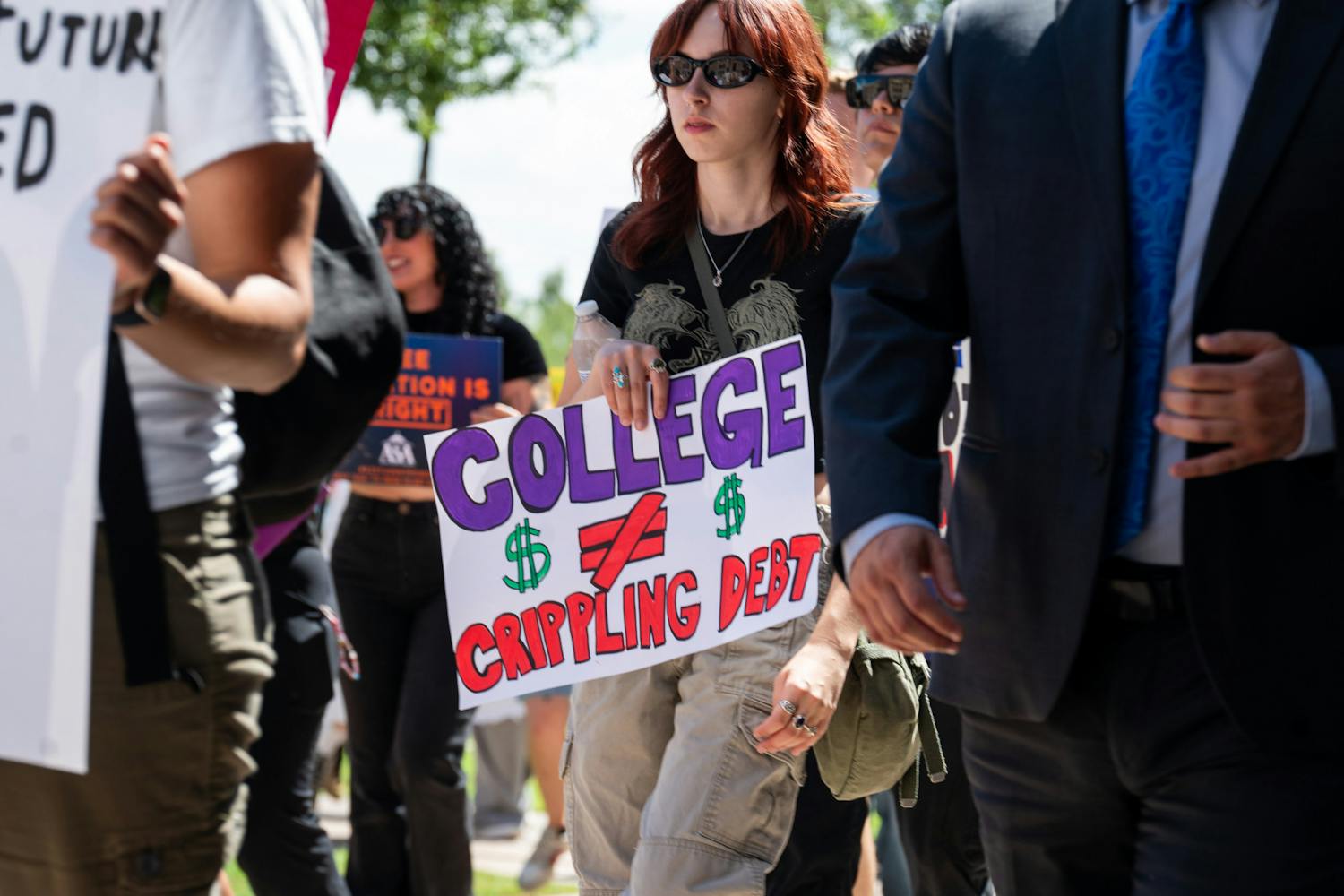Iana Pashaeva had been looking forward to studying in the U.S. this semester. She wanted to meet American students, chat with her professors in the classroom and experience the hustle and bustle of a typical day on campus.
Now, with a deserted campus and nearly empty classrooms, Pashaeva, a journalism student from Russia, is missing out on that cultural exchange.
"In Moscow, even during the pandemic, there are a lot of people in the streets and you can still feel life," she said.
Pashaeva is part of Hubert H. Humphrey Fellowship Program, which brings mid-career international journalism professionals to the U.S. for an intensive study experience.
Her travels to the states come at a time marked by political tension and little chance for social interaction. Despite this, she still views the country in a positive light.
"There are a lot of things I admire about the U.S., though I understand that they have their own problems," she said.
Pashaeva has always had a fascination with American culture. As a multimedia journalist, she admires the freedom of the press. Most of all, she loves the diversity and inclusivity the country offers, as well as the liberty to express yourself.
"We don't have such freedom in Russia," she said.
Like Pashaeva, some international students feel that the political climate has had no effect on their desire to study here. Many plan to study at ASU until they graduate and then start their career here post-graduation.
Wen-Tzau Hsu, a sophomore studying accountancy from Taiwan, said the U.S. economy drew him to study here. Pursuing a career in the business world, the political climate has had little influence on his decision.
"Wall Street, the economy of the U.S. and a bigger market were some of the reasons I wanted to study here," he said.
Other students said their perception of the U.S. has changed recently, especially with the way the government has handled the pandemic.
Myke Cohen, a graduate student studying engineering, said he was disappointed when reading the news about the pandemic going undetected for months in early 2020.
Moreover, when it was detected, he was shocked that quarantine measures and mask mandates were not taken more seriously. Cohen, who is currently studying from Manila, feels that the Philippines is a lot stricter with quarantine measures.
"It was very disheartening, to say the least, to see everyday examples like that," he said. "I used to think the U.S. government was on top of these things."
However, Cohen hopes his view of the U.S. government will improve with Biden in office.
Just hours after President Joe Biden was inaugurated on Wednesday, he signed 17 executive orders, including some that will benefit international students, such as ending the Trump administration's travel ban.
Cohen is also concerned about vaccine rollout, which will play a crucial role in whether he will be able to return to campus. He is hopeful that it will be distributed faster under Biden.
READ MORE: Community assistants now eligible for COVID-19 vaccine
"I've been looking forward to having him elected," Cohen said. "The outgoing administration was concerned with developing the vaccine, but not rolling it out."
When asked if he has considered moving to the U.S. permanently, Cohen said his decision has changed completely. Four years ago, he would have absolutely wanted to start a career in the U.S., but he now has other prospects.
"If I was going to move to another country for better job opportunities, it might as well be in a place where I feel a bit more secure," he said. "I'm not sure if it will be the U.S. because of what it looks like right now."
Reach the reporter at omccann1@asu.edu and follow @ocmccann on Twitter.
Like The State Press on Facebook and follow @statepress on Twitter.
Continue supporting student journalism and donate to The State Press today.




